Soportújar, a small white village in the Alpujarra region of Spain, halfway between Órgiva and Pampaneira, is often referred to as the “Village of Witches” due to its reputation for paranormal activity and ghostly sightings.
I went to explore with my Nikon FE2 film camera. But first…
A brief history
Legend has it that in the Middle Ages, Soportújar was inhabited by witches who performed spells and rituals in the nearby mountains. These witches were experts in manufacturing ointments and magical potions and met secretly to celebrate their nocturnal rituals.
This reputation is rooted in local folklore and legends passed down through generations.
The people of Soportújar cleverly use this reputation to transform the town into a centre of legends and mysteries, drawing thousands of visitors each year. This is part of the Embrujo Project, initiated in 2001, which aims to promote rural tourism and halt depopulation.
The village of witches
Upon approaching Soportújar, there is a sign announcing that you are entering the land of witches.
Throughout the town, you will see signs of witchcraft, magic and enchantment on every corner. The house numbers have witches on brooms next to them; the streetlamps feature black cats and flying brooms; there are murals painted on the walls; pots and bowls stacked in corners; esoteric shops and an endless number of sculptures of witches and their paraphernalia!
Exploring Soportújar
Soportújar is a typical Alpujaren white village with many examples of Moorish architecture. One such element is the tinao, a traditional covered passage. Tinaos are common in this region as they provide shade and maximise space. It is possible that the town’s name, Soportujar, originates from the tinao, derived from “arcade,” the place of arcades.
The village’s steep and narrow streets are well-maintained and are adorned with numerous flower pots. In the lower part of the village, you will find Calle Zanjilla; measuring just 48 cm wide, this is one of Spain’s narrowest streets.
In the centre of the village is the sole church of Soportújar, St. María la Mayor. It dates back to the 16th century and was built on the remains of a mosque. The altar dates back to the 18th century.
But enough talk, let’s take a photo walk and explore Soportújar.
Click on any photo to see a larger version.
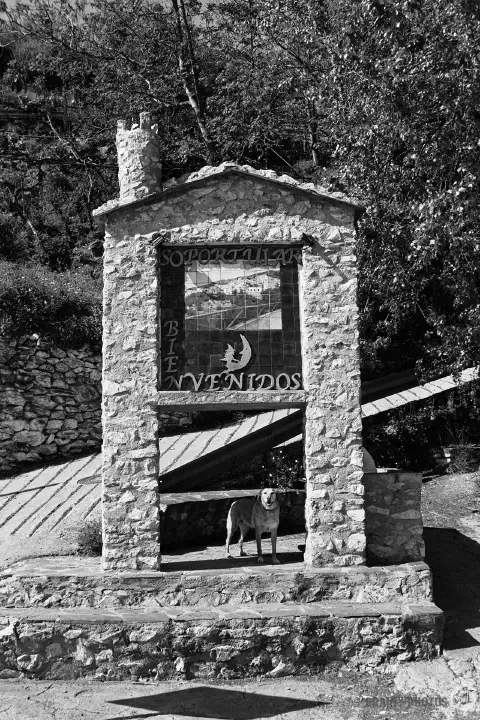
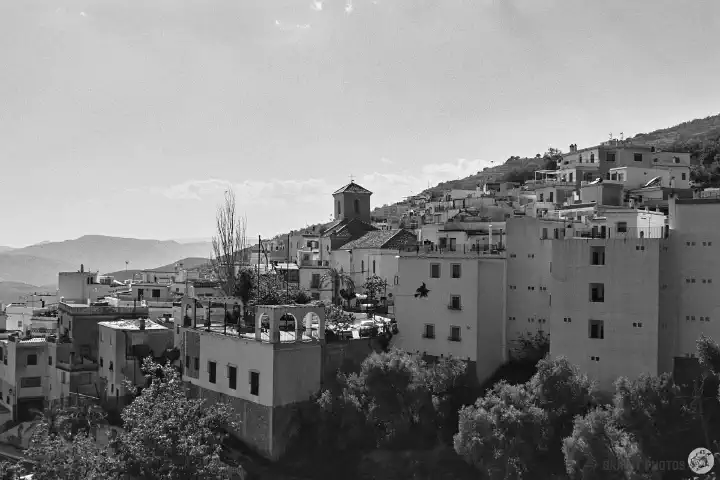
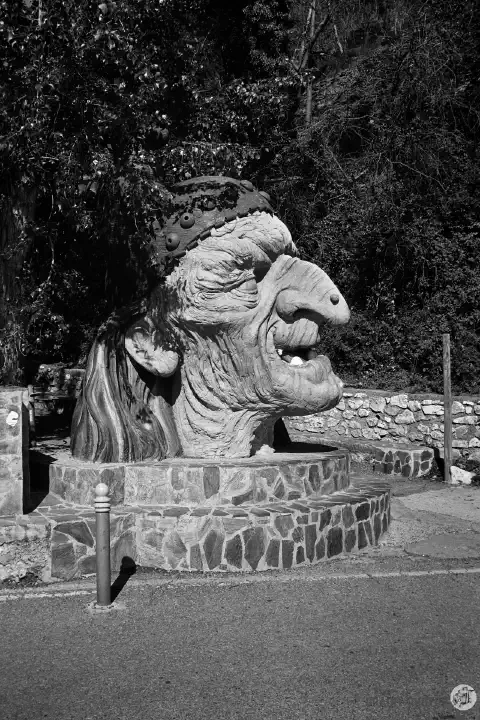
This sculpture, located at the entrance of the town in the Barranco Frío recreational area, is by José Vera. It is the giant head of the famous witch Baba Yaga, a mythical being in Slavic folklore. This evil witch loves to eat people, especially children, and it’s said that she ages a year every time you ask her a question.
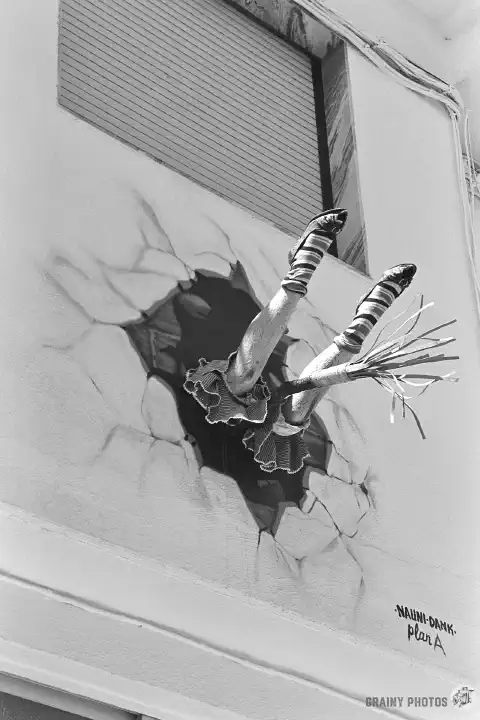
This fun wall decoration simulates the remains of a clueless witch who crashed into the wall and got stuck. Only her legs and part of her broom are sticking out of the wall. Personally, I interpreted it as a learner witch who hadn’t mastered flying.
This is located near the village entrance opposite the Romero Tavern. I took the photo from my table while enjoying a cold beer and tapas.
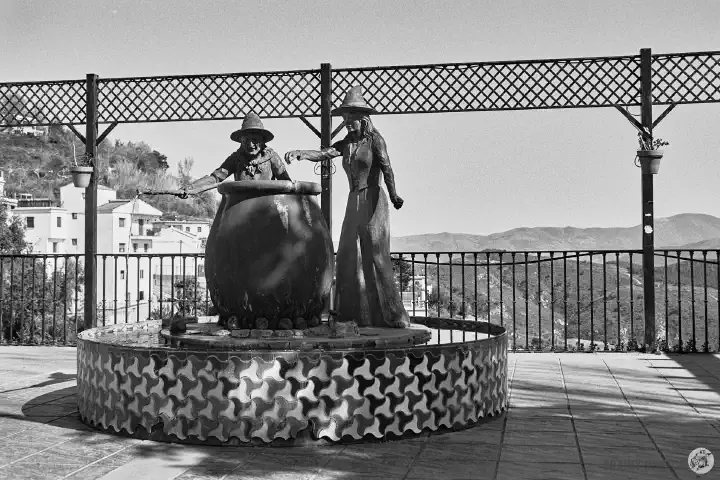
This emblematic fountain is located in the town’s central square, providing an impressive viewpoint: the Mirador del Embrujo de Soportújar.
The 2014 sculpture depicts two witches; the younger one observes and learns from the other. The sculpture is made so that it can be moved if necessary.
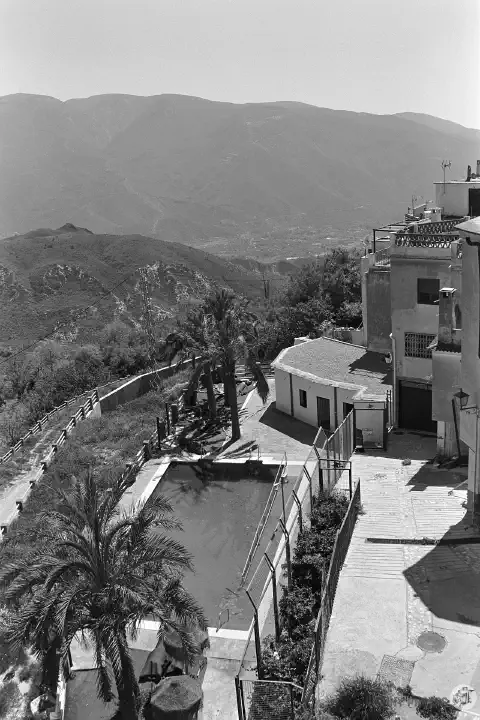
The view from the Mirador del Embrujo viewing point is panoramic and beautiful, with the mountains and the valley stretching out before you.
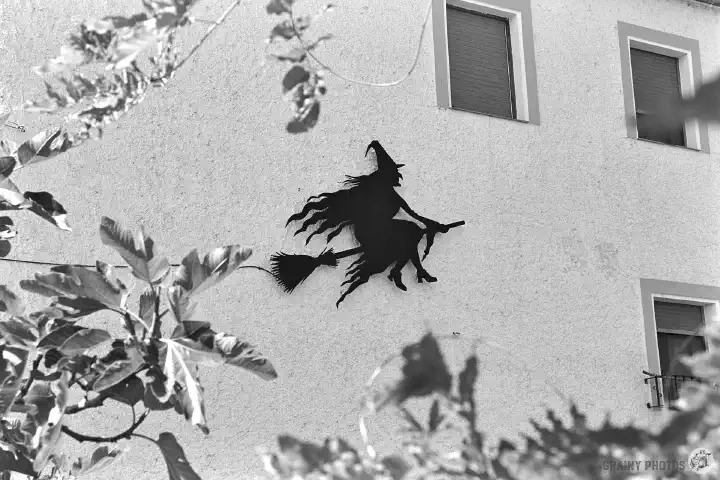
Now, let’s wander around some of the narrow streets. Remember to look for the witch theme; there’s evidence of it everywhere.
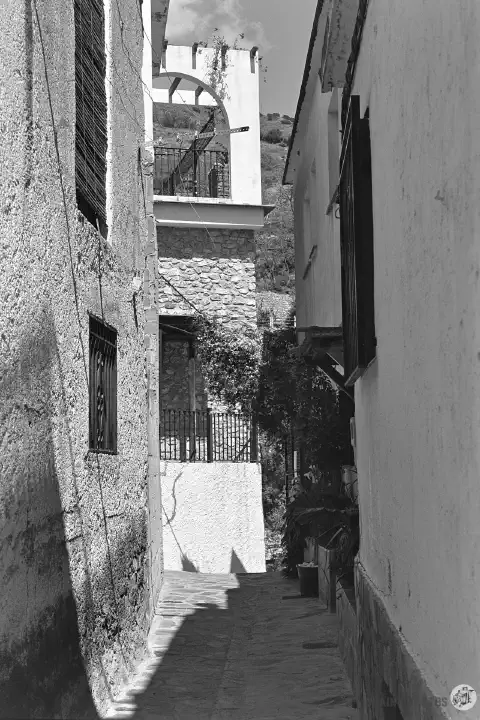
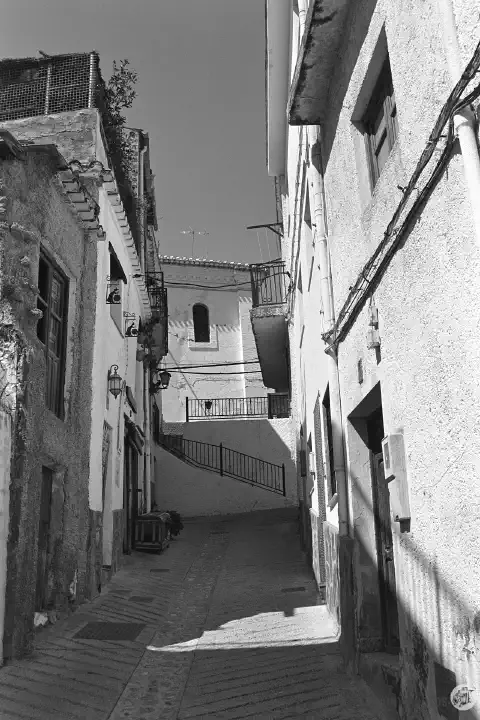
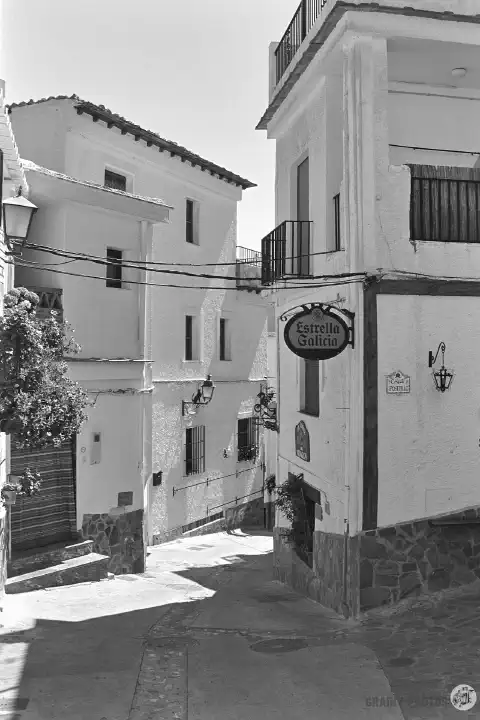
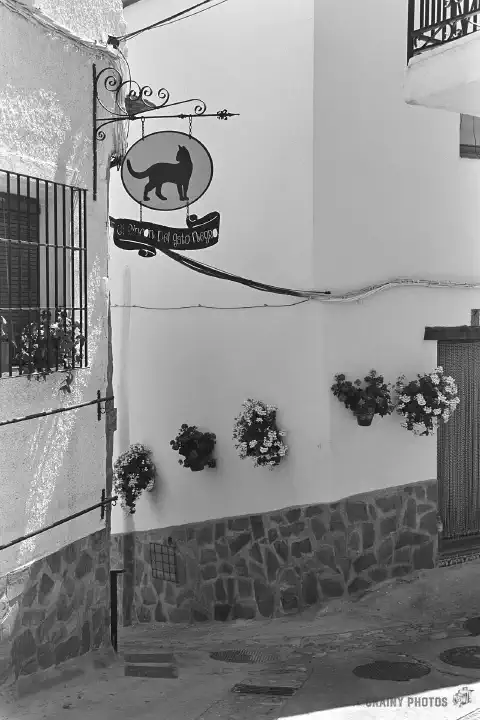
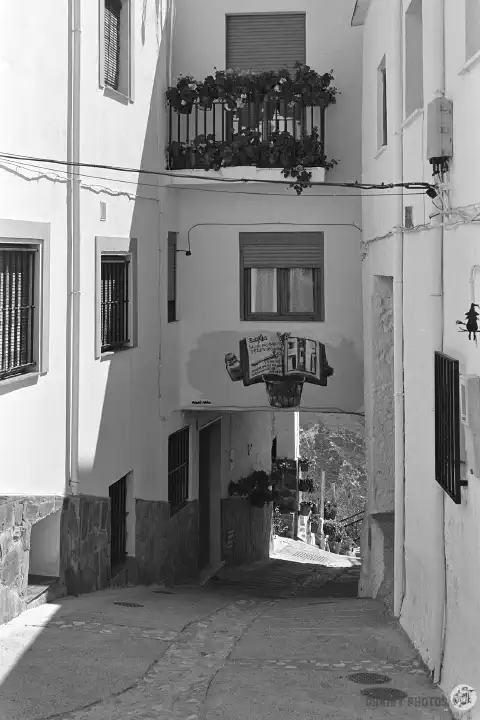
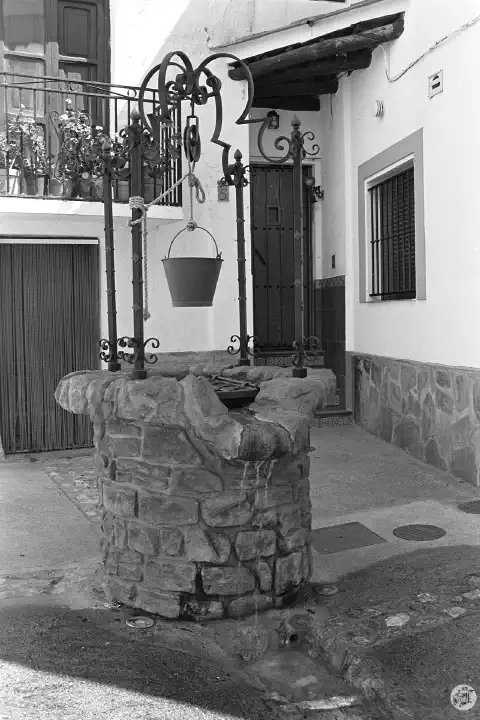
This well is located in a small courtyard on Baja Street, close to Zanjilla Street (supposedly the narrowest street in Spain). It is popular with many who believe that flipping in a coin and making a wish will make it come true. However, some say it is more of a bad luck well…
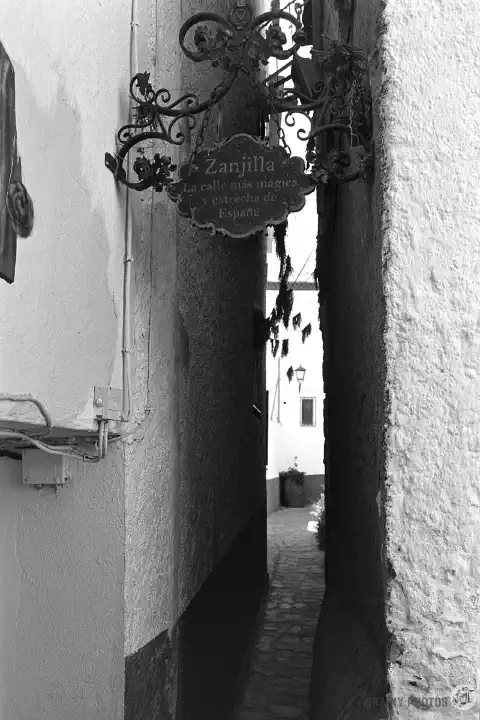
Calle Zanjilla is only 48 centimetres wide. Perfectly wide enough to walk along, but passing someone going the other way? Forget it (unless you want to get very intimate)!
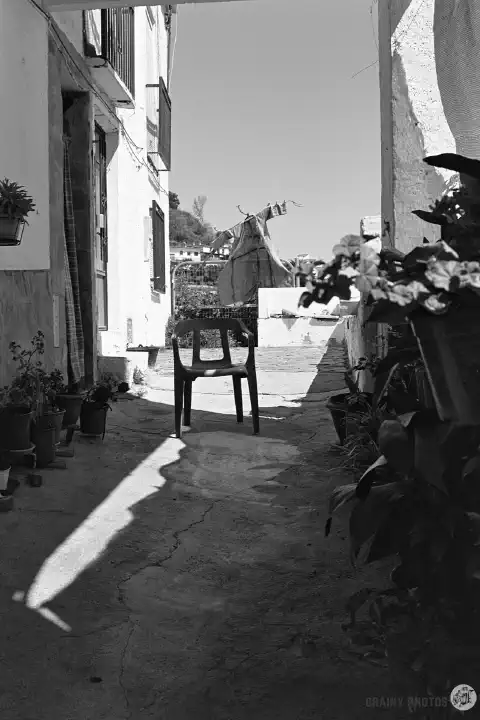
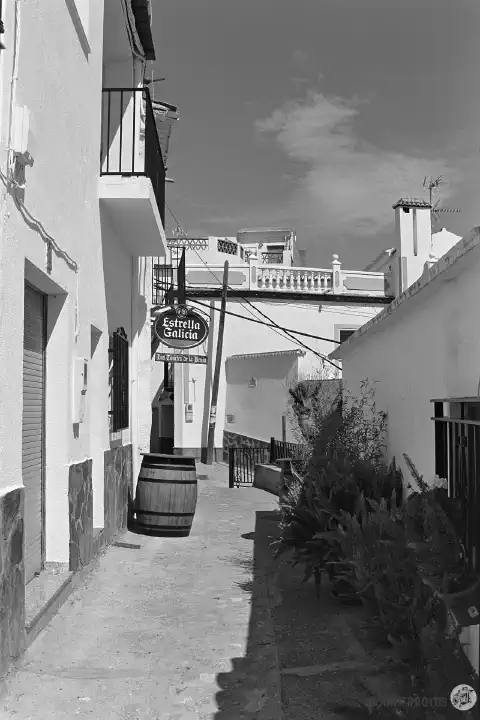
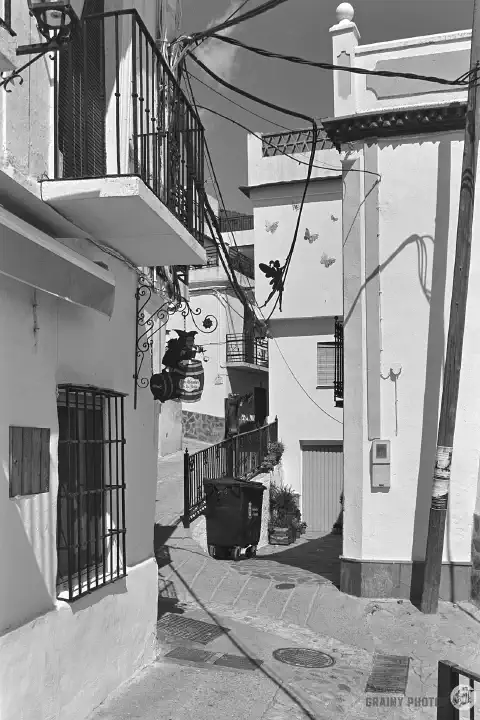
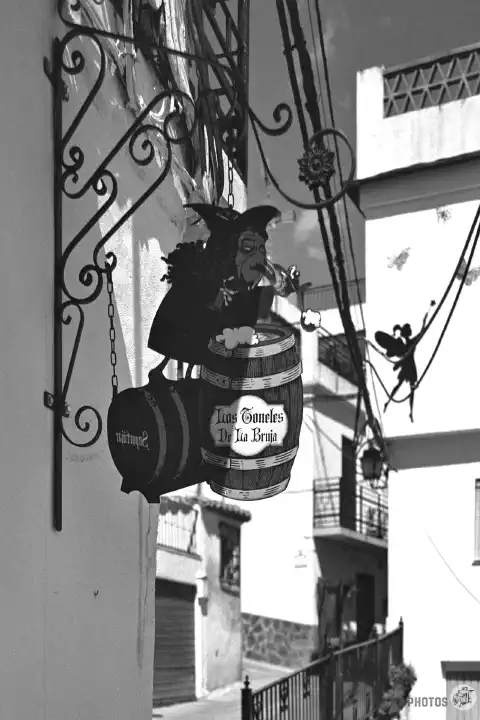
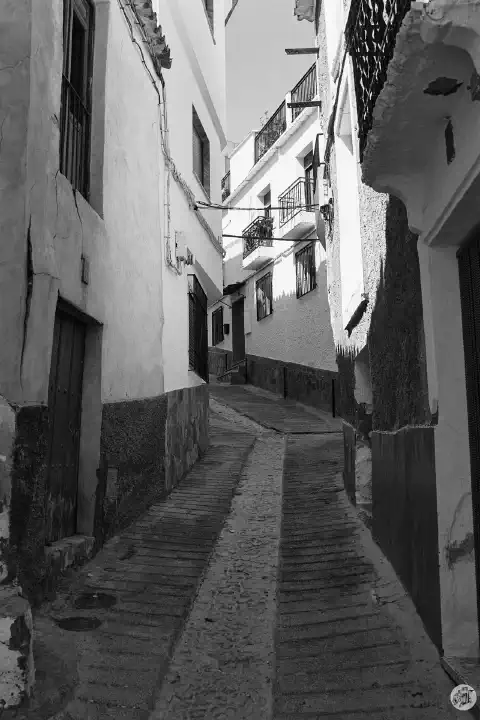
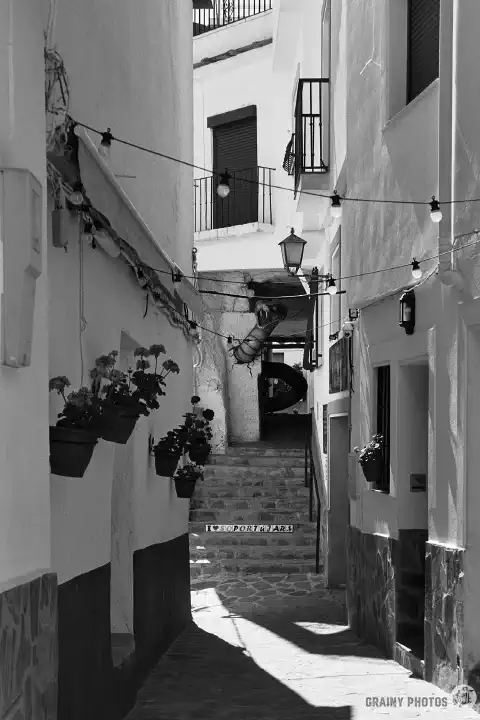
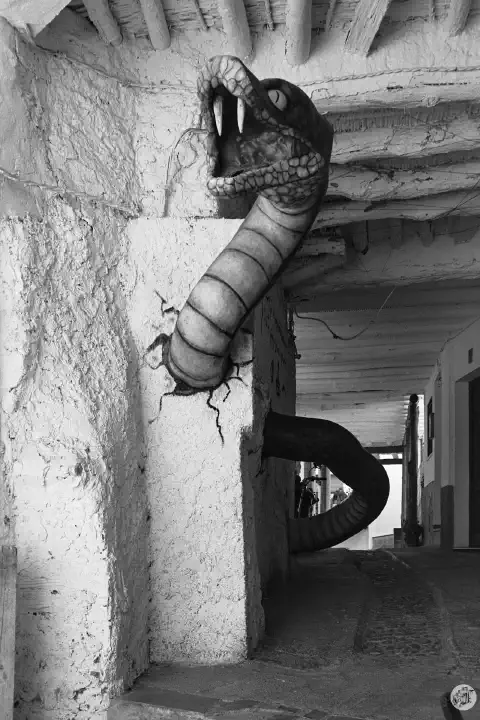
Serpiente Maléfica, or Evil Snake on Calle Real, under one of the wonderful tinaos. A tinao is a traditional covered passage in the Alpujarra region. Tinaos are common in this region as they provide shade and maximise space.
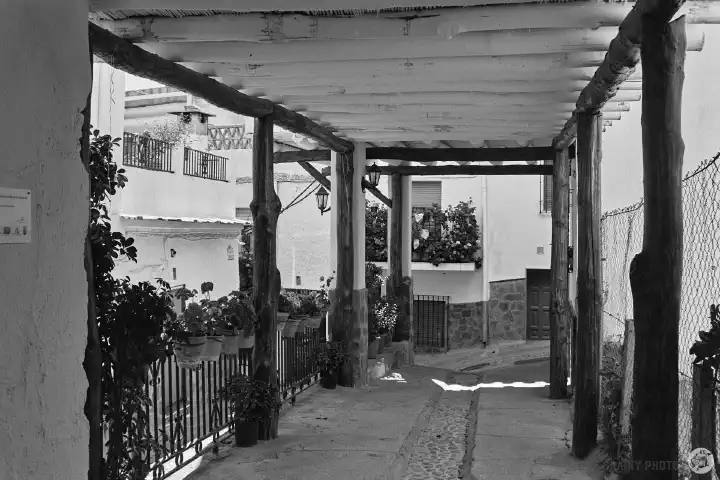
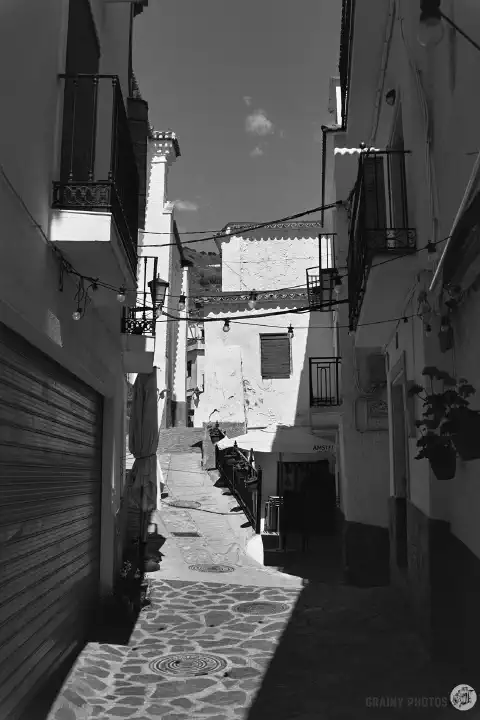
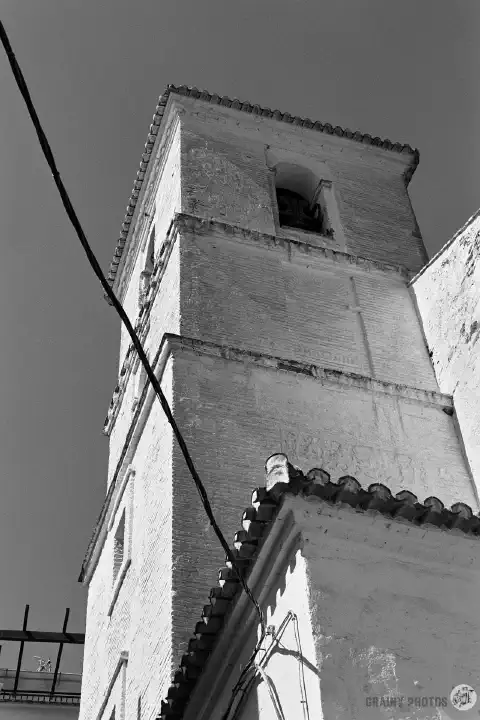
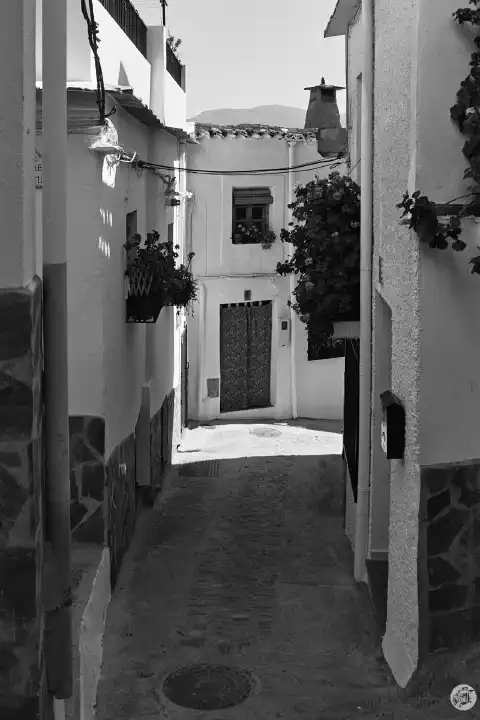
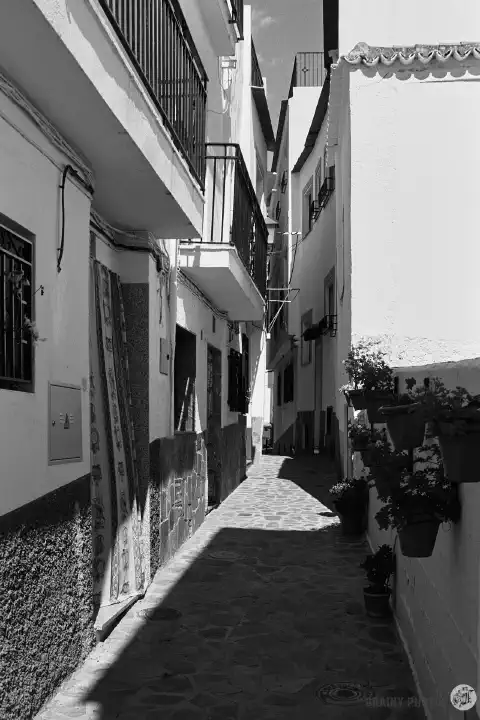
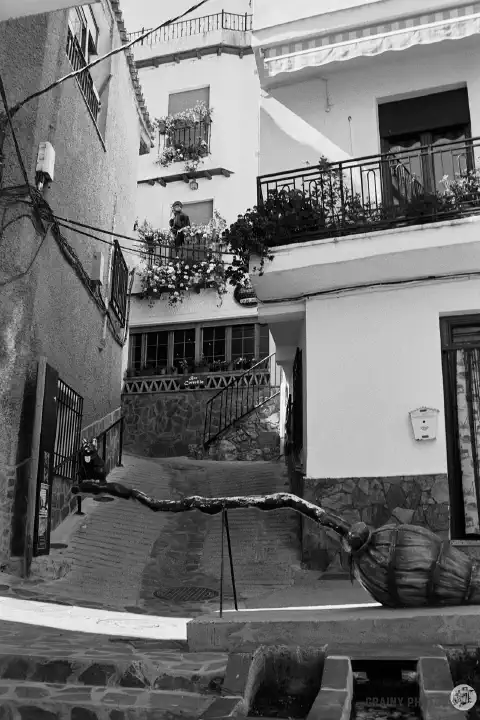
This large magic broom, complete with a black cat, is a popular spot for tourists taking photos.
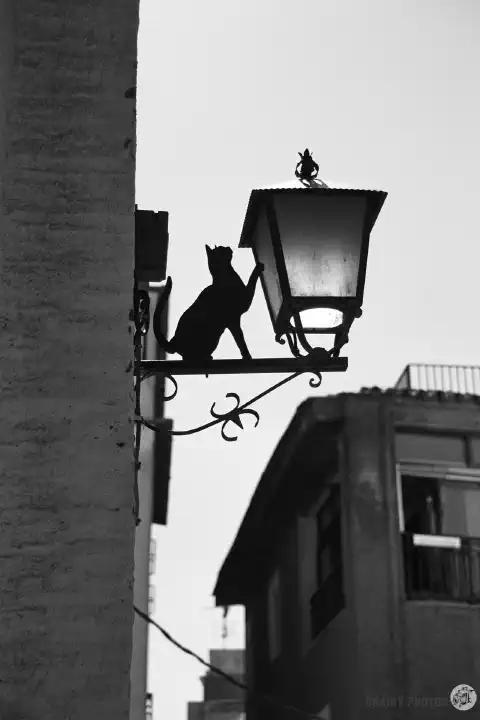
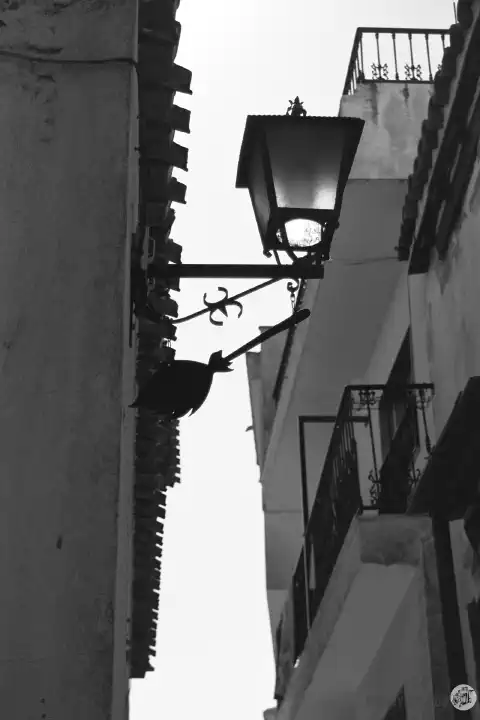
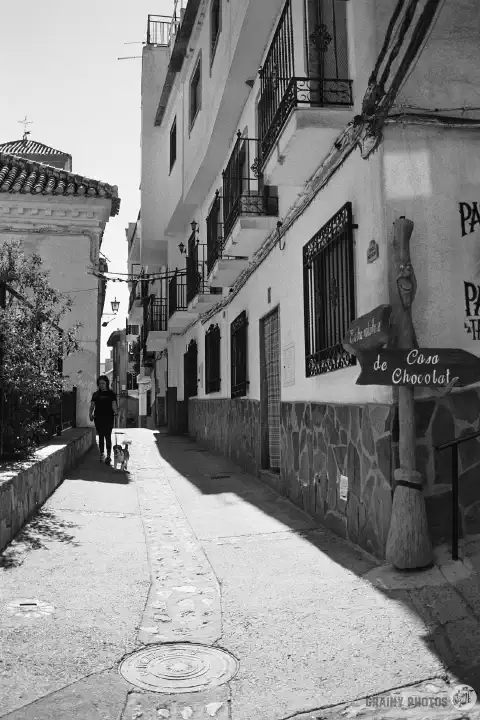
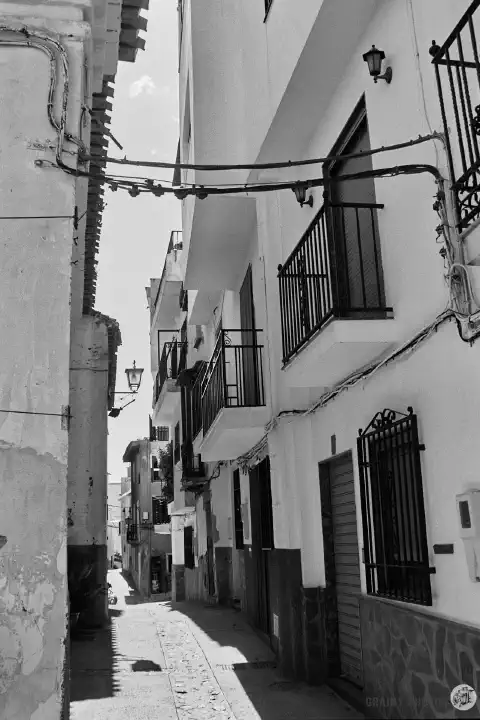
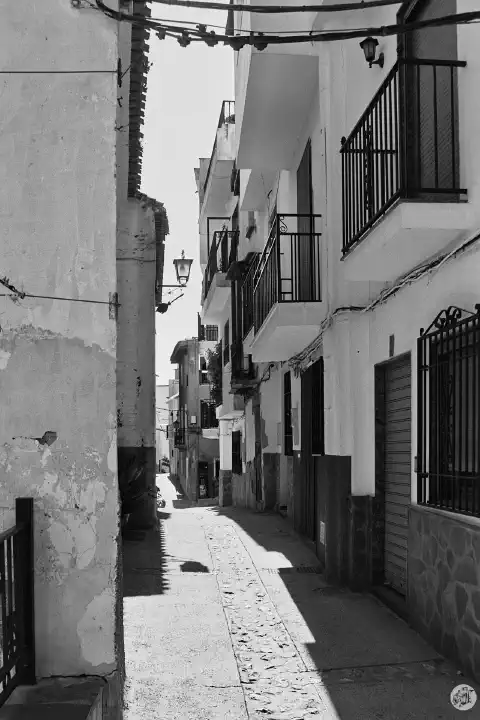
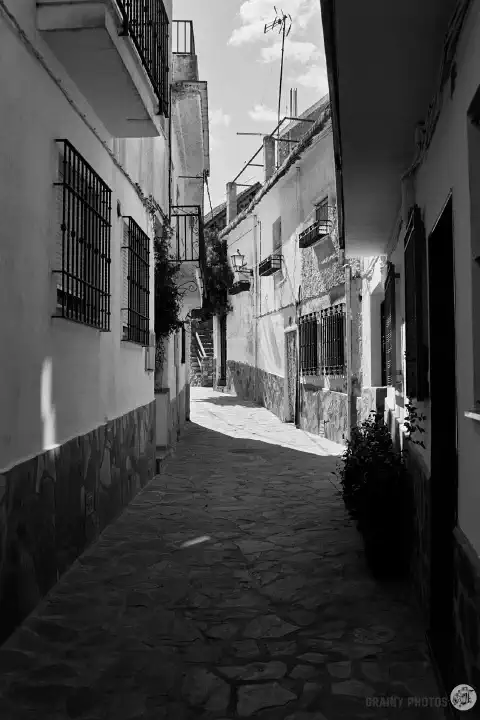
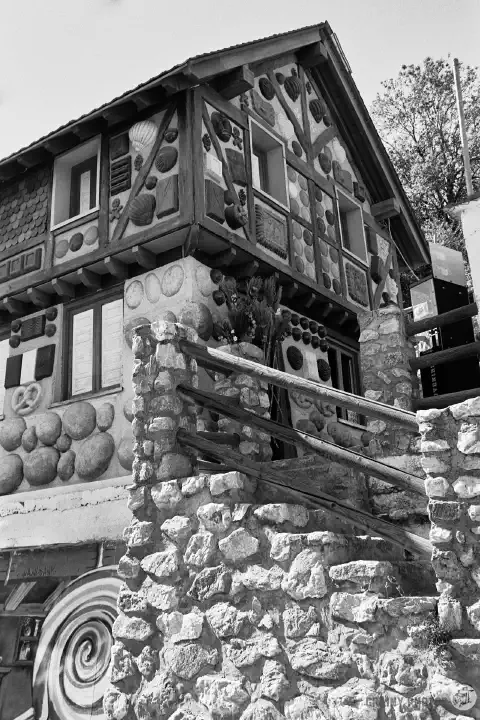
Casa de Hansel y Gretel on Alta de Soportújar Street was created in 2021 by the sculptor José Vera Ruiz.
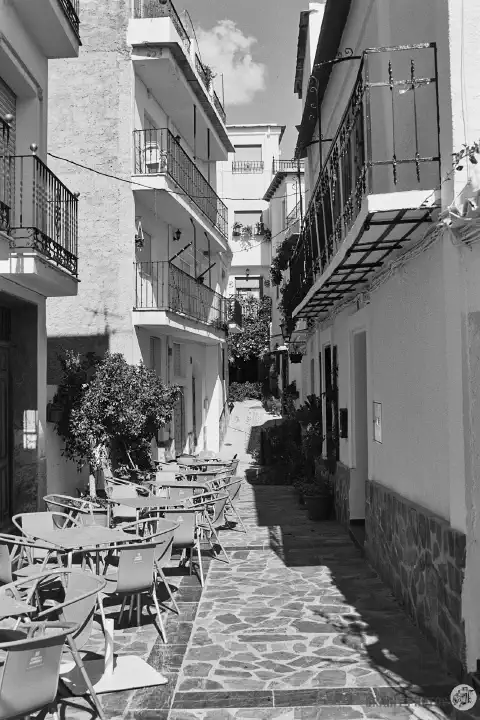
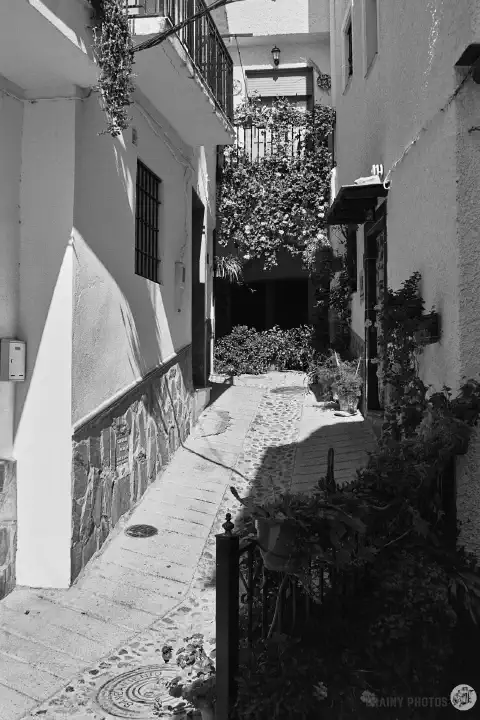
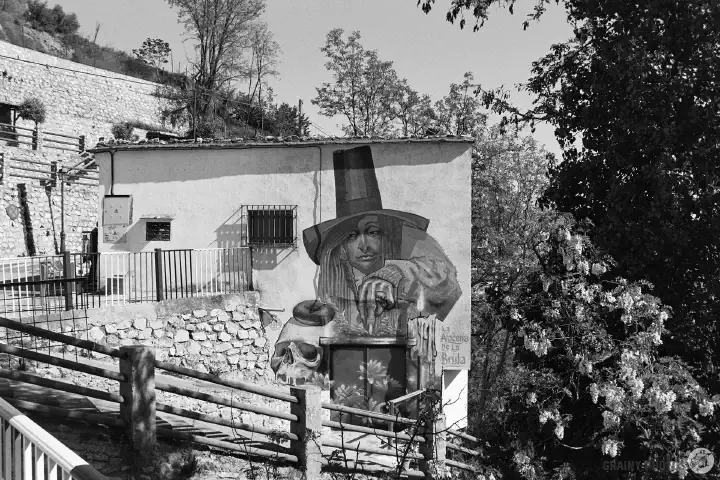
Other activities
Due to Soportújar’s location on the edge of the Sierra Nevada Natural Park, it is, like other towns in the Alpujarra, an ideal hiking area.
Many of the most beautiful trails in the province of Granada pass through here. The GR7 trail that runs through all of Andalusia reaches Soportújar from the Lecrín Valley, passing through Lanjarón and Cáñar. It then continues on to the villages of the Poqueira Valley before ultimately reaching Trevélez.
I did a stunning short trek above Soportújar to Dam 24.
Film photo details
This white village is certainly different. It has the charm of a typical Spanish white village and a witchcraft theme! Some aspects of the witch theme were over the top and garish; I didn’t bother photographing those.
Camera used: Nikon FE2 film camera
Film: Ilford Delta 100
Developer: I shot two films. One was developed in Spur Acurol-N 1+70 @20C for 8.5 minutes @20C, and the other in Ilfotec LC29 1+29 @20C for 6 minutes and 45 seconds @20C.
The photos were digitised using a Nikon Z6 mirrorless digital camera with a Tokina AT-X Pro Macro 100mm f2.8 D lens and processed using Capture One software.
Film roll No’s 387 and 388
See more posts about White Villages in Spain.
See more posts about Places in Spain.
